Medically reviewed by Dr. Ramesh Gaddam, M.D. — Written by Sumalatha, D.N.H.E
Table of Contents
ToggleChia seeds are tiny but packed with nutrients. They offer many health benefits, making them a great addition to your diet.
Rich in fiber, they support digestion and help you feel full longer. Chia seeds also contain omega-3 fatty acids, which are good for heart health.
They provide essential minerals like calcium for strong bones.
Adding chia seeds to meals can boost energy and improve overall well-being, making them a simple and nutritious choice.
1. Chia Seeds Nutrition
Nutritional profile of chia seeds (per 28 grams or about 1 ounce):
| Nutrient | Amount (per 28g) | % Daily Value |
|---|---|---|
| Calories | 138 | – |
| Protein | 4.7 grams | 9% |
| Fat | 8.7 grams | 13% |
| Omega-3 Fatty Acids | 4.9 grams | – |
| Carbohydrates | 12 grams | 4% |
| Fiber | 10.6 grams | 42% |
| Calcium | 177 mg | 18% |
| Iron | 2.2 mg | 12% |
| Magnesium | 95 mg | 23% |
| Phosphorus | 244 mg | 25% |
| Potassium | 115 mg | 3% |
| Zinc | 1.0 mg | 7% |
This shows chia seeds are rich in fiber, healthy fats, and important minerals like calcium and magnesium.
2. Health Benefits of Chia Seeds
Chia seeds are packed with nutrients like fiber, protein, omega-3s, and antioxidants, making them very healthy.
Here are the main benefits of eating chia seeds:
1. Supports Digestive Health
Chia seeds are rich in fiber, which helps with digestion.
Fiber adds bulk to your stool, making it easier to pass and preventing constipation.
Eating fiber-rich foods like chia seeds can keep your digestive system regular.
They also promote the growth of good bacteria in your gut, supporting overall gut health.
Adding chia seeds to your meals can make digestion smoother.
2. Boosts Heart Health
Chia seeds contain omega-3 fatty acids, which are known for their heart-healthy benefits.
These fats help reduce inflammation and lower bad cholesterol levels.
By including chia seeds in your diet, you can improve your heart health and reduce the risk of heart disease.
Omega-3s also support better circulation. Eating chia seeds regularly can help keep your heart strong.
3. Helps Maintain Healthy Weight
The fiber in chia seeds helps you feel full for longer, which may prevent overeating.
When chia seeds absorb liquid, they expand in your stomach, curbing hunger.
This can be helpful if you’re trying to maintain or lose weight.
They also provide energy without adding many calories. Including chia seeds in your meals can support healthy weight management.
4. Strengthens Bones
Chia seeds are a good source of calcium, which is essential for strong bones.
They also provide magnesium and phosphorus, which are important for bone health.
Regularly eating chia seeds can help you maintain strong bones and reduce the risk of bone loss.
They are a great plant-based calcium source for those who don’t consume dairy. Adding them to your diet supports bone strength.
5. Supports Energy and Endurance
Chia seeds are packed with nutrients that provide a steady release of energy.
They contain carbohydrates, protein, and healthy fats that fuel your body throughout the day.
Athletes often use chia seeds for endurance and performance.
Eating chia seeds can help improve stamina without causing spikes in blood sugar. They are a natural and healthy energy booster.
6. Regulates Blood Sugar Levels
Chia seeds can help keep blood sugar levels stable.
The fiber in chia seeds slows down the absorption of sugar in your bloodstream, preventing spikes and crashes.
This can be especially helpful for people managing diabetes or those looking to avoid energy dips after meals.
Regular consumption of chia seeds may improve insulin sensitivity, which helps your body use sugar more effectively.
Including them in your diet can support balanced blood sugar levels.
7. Improves Skin Health
Chia seeds are rich in antioxidants, which protect your skin from damage caused by free radicals.
These antioxidants help reduce signs of aging, like wrinkles and fine lines.
Omega-3 fatty acids in chia seeds also support skin hydration and reduce inflammation, keeping your skin looking healthy and radiant.
Regular consumption can promote a youthful glow and help with skin repair.
Adding chia seeds to your diet benefits your skin from the inside out.
8. Supports Muscle Building and Recovery
Chia seeds are a plant-based source of protein, making them great for supporting muscle health.
They provide the essential amino acids your body needs to build and repair muscle tissue.
Eating chia seeds after workouts can help with muscle recovery and reduce soreness.
Their healthy fats and antioxidants also help fight inflammation, speeding up recovery time.
For those looking to build or maintain muscle, chia seeds are a nutritious option.
9. Enhances Hydration
Chia seeds can absorb up to 12 times their weight in water, helping to keep you hydrated.
When mixed with liquid, they form a gel-like consistency, which helps your body retain water longer.
This can be especially beneficial during intense exercise or in hot weather.
Staying hydrated is key to keeping your body functioning properly, and chia seeds make it easier to meet your hydration needs.
Including them in drinks or meals can boost your water intake.
10. Supports Brain Function
The omega-3 fatty acids found in chia seeds are also beneficial for brain health.
These fats play a key role in supporting cognitive function, memory, and mood.
Consuming foods rich in omega-3s, like chia seeds, can help protect your brain from age-related decline.
They also help reduce inflammation, which can affect mental health.
Adding chia seeds to your diet may enhance brain function and mental clarity.
3. Uses of Chia Seeds
1. Smoothies
You can add chia seeds to smoothies for extra nutrients.
Just mix them in, and they will blend well, adding a slight texture without changing the flavor much.
This is a simple way to boost your fiber and omega-3 intake.
2. Baking
Chia seeds are often used in baking. You can add them to bread, muffins, or cookies for a nutritious twist.
They also work as a substitute for eggs when mixed with water, forming a gel that helps bind ingredients.
3. Puddings
Chia seeds can be used to make a healthy pudding.
When mixed with milk or a dairy-free alternative, they absorb the liquid and form a thick, creamy texture.
This makes for an easy, nutritious dessert or snack.
4. Topping for Salads or Yogurt
Sprinkle chia seeds on top of salads or yogurt for a crunchy, nutritious boost.
They don’t have a strong flavor, so they complement many dishes without overpowering them.
5. Energy Bars
Chia seeds are often added to homemade or store-bought energy bars.
They provide a mix of protein, fiber, and healthy fats, helping you stay full and energized throughout the day.
6. Drinks
Chia seeds can be mixed into water or juice to create a refreshing drink.
They swell up in liquid, giving the drink a thicker texture, which helps with hydration.
You can flavor it with lemon or fruit for a simple, nutritious drink.
7. Soups and Sauces
Chia seeds can be used to thicken soups and sauces.
When added to liquids, they absorb water and swell, giving soups a slightly thicker texture without altering the taste.
This makes them a healthy alternative to flour or other thickening agents.
8. Oatmeal and Porridge
You can stir chia seeds into oatmeal or porridge for added nutrition.
They blend well with hot cereals and provide extra fiber and protein to keep you feeling full longer.
Plus, they add a nice texture to your breakfast.
9. Homemade Jams
Chia seeds are great for making quick, healthy jams.
When mixed with mashed fruits, they thicken the mixture naturally without needing added sugar or gelatin.
This makes for a simple, nutritious spread for toast or desserts.
10. Healthy Snacks
You can use chia seeds in homemade granola or trail mix.
They are easy to mix with nuts, dried fruit, and other seeds, providing a healthy snack rich in fiber, protein, and healthy fats.
11. Yogurt Alternatives
For those avoiding dairy, chia seeds can be used to create a yogurt-like texture.
Soak them in a dairy-free milk alternative, and they will form a thick, creamy mixture that can be eaten with fruits or nuts.
Medically reviewed by Dr. Ramesh Gaddam, M.D.

General Physician, Diabetologist, and Critical Care Specialist.
Related
Discover more from Health Build-Up
Subscribe to get the latest posts sent to your email.
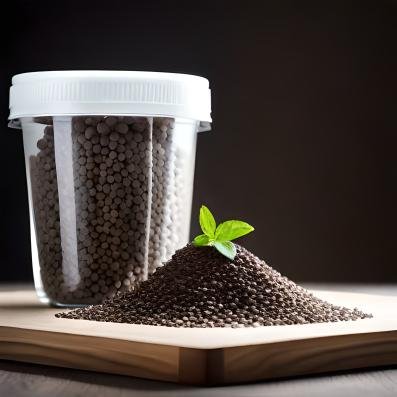
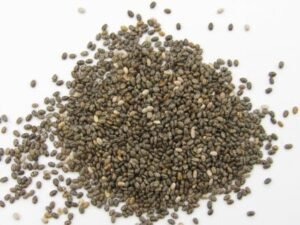
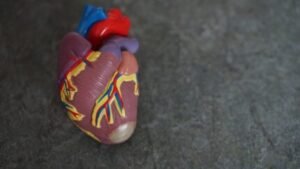






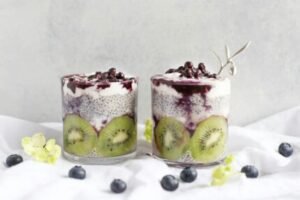
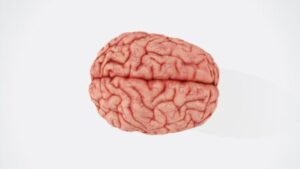
3 thoughts on “10 Health Benefits of Chia Seeds, Nutrition & Side Effects”
Comments are closed.